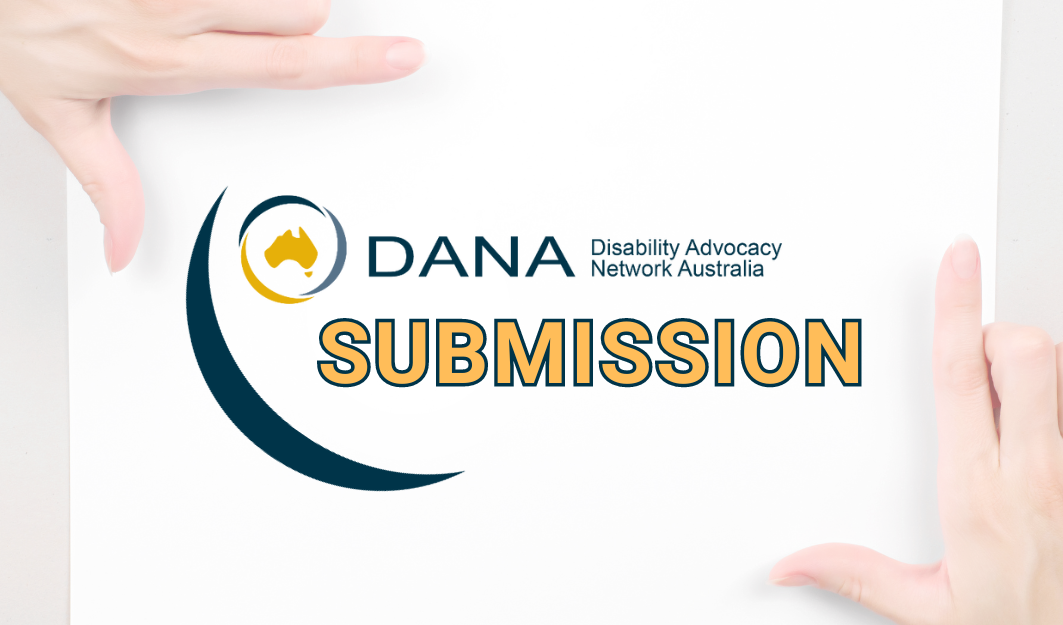TUESDAY, 28 MAY 2024
Our latest submission highlights the need for regulatory changes to be co-designed with broader safeguarding and structural reforms, and ensuring that reforms are led by people with disability.
Principles to Guide Reforms
Our submission outlines important principles to guide the development of the new model:
- Improve safety and quality of services and supports for people with disability.
- Preserve and improve choice and control for people with disability.
- Embed co-design and meaningful consultation with people with disability.
A Broken System
DANA’s network advocates for some of the most marginalised people with disability. Our submission highlights systemic failures in delivering quality, choice, and safety to people with disability, including:
- Building and guiding Australia’s disability supports ecosystem.
- Overseeing and responding to complaints about quality.
- Safeguarding against harm, neglect, and isolation.
There are significant safeguarding gaps in both registered and unregistered providers, with frequent reports of neglect, exploitation, violence, and abuse. Unregistered providers, particularly those delivering supported independent living (SIL) support, lack oversight and visibility.
The Need for a Unified and Inclusive System
The new model must allow flexibility, innovation, and self-direction while effectively identifying and responding to high-risk contexts. The NDIS needs to differentiate between individual circumstances and respond to varying levels of risk with nuance, avoiding a “second class” system for some participants.
One Piece of the Puzzle
Getting the new model for registration and enrolment right is crucial, but it is only one part of the broader transformative changes needed in the NDIS.
Our key recommendations
- Quality and Safety: Ensure safer and higher-quality services and supports for people with disability, integrating improvements to the NDIS and quality/safeguarding measures.
- No Loss of Support: Prevent loss of support during the transition, with public reports on implementation and impact for transparency and accountability.
- Choice and Control: Maintain choice and control over supports within and outside the NDIS to respect autonomy and preferences.
- Simplified Enrolment: Allow basic enrolment without extensive worker screening, reducing complexity and cost.
- Valued Options: Accommodate valued options like “services for one,” mainstream supplies, and direct employment of support workers for diverse needs and preferences.
- Co-Design Leadership: Ensure people with disability lead and are central to the co-design process.

